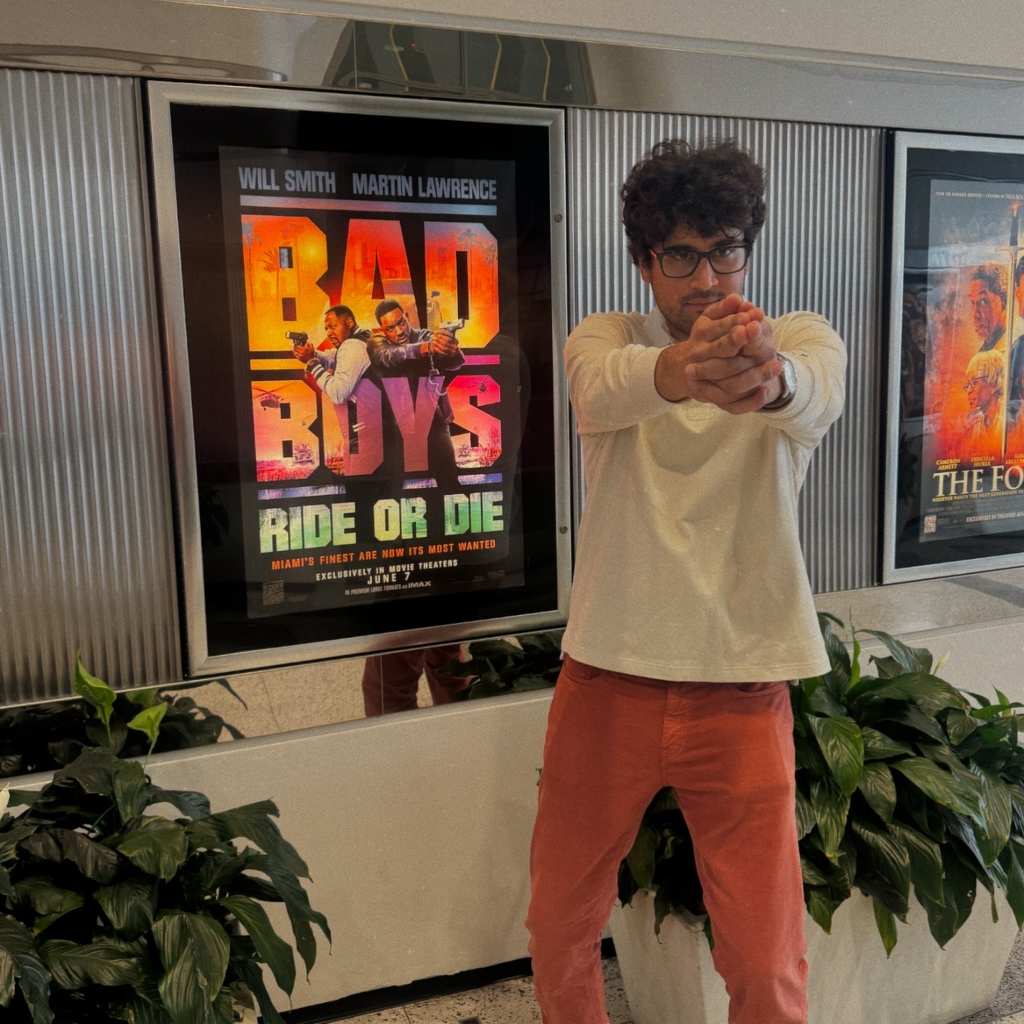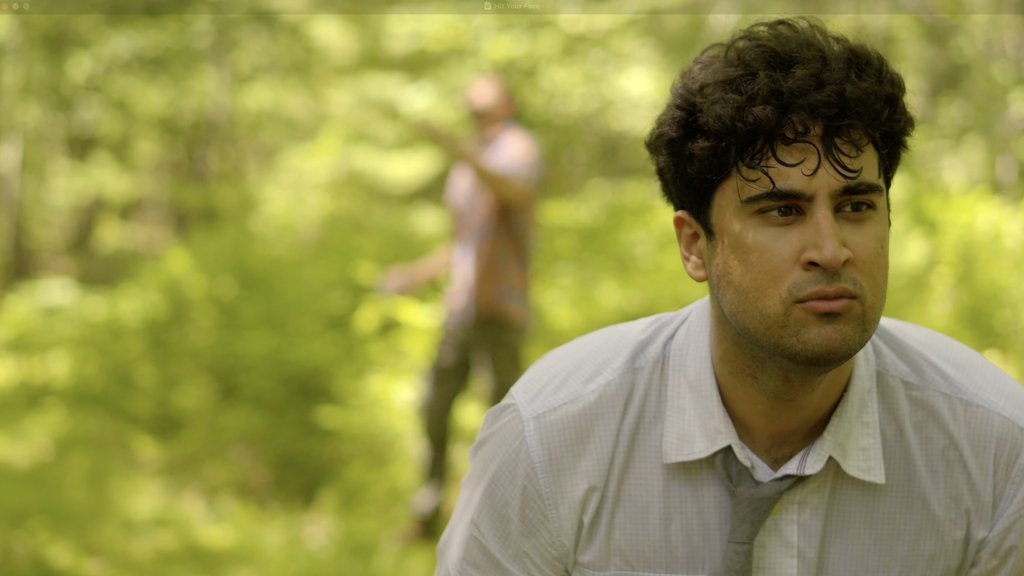Sammy Zaidi ‘18 on Making It in LA
For many, breaking into the entertainment industry can feel impossible especially in a place as competitive as Los Angeles. Sammy Zaidi ’18, however, has found his footing, navigating the industry with determination and a willingness to adapt. Recently, in conversation with FNMS Department Assistant Sierra Seetin ‘28, he shared his journey from Wheaton to his current work in Hollywood, offering insights into what it really takes to build a career in film and television.
Sierra: Can you walk me through your journey from Wheaton to where you are now?
Sammy: OK, so yeah—I got into a master’s program, a dual-degree setup. The idea was you spend one year and get your Master of Science in the UK at the London School of Economics, then finish your second year in LA at the University of Southern California. While I started in 2019, everything got disrupted by COVID which delayed my studies a year. I drove out to LA for the first time in 2021 and graduated in 2022
The aspiration was always entertainment. I studied Film and New Media at Wheaton, but I ended up working in data analytics at a creative agency. I tried that out, but didn’t love it, and the company got acquired, so it was an easy choice to pivot fully towards entertainment.
Then the writers’ strike hit, and everything stalled. My first real entertainment job was at Bad Boys, in their VFX department. I was brought on by fellow Wheaton classmate Bay Gammans ‘18. But the advice there was basically: unless you want to stay in VFX, get out. And I was more interested in the business side.
I recently started working at The Shuman Company. My boss, Larry Shuman, is a talent manager. He represents writers like Alexi Hawley (“The Rookie”) and Shawn Ryan (“The Night Agent”). My job is to make his life easier—script coverage, forwarding contracts, and submitting writers to studios and production companies as requested.

Can you tell me a little about your day-to-day responsibilities?
In the day-to-day, I’m more in the background, like the guy at the computer while the hero’s off saving the day. It’s a thankless role, but the industry works like an apprenticeship. You work your way up from PA or assistant to whatever path you want to take. Most of Larry’s time is spent on calls or in meetings. I help manage Larry’s calendar, keep up with meetings, handle calls, and help with personal stuff, too. We work closely with the big talent agencies—CAA, WME, UTA. He’s always on the move—lunches, meetings, clients. My job is to hold down the fort, relay messages, and help however I can.
Is there a viable career path in talent management and representation?
Representation is interesting and you can make a good living. But it’s also crazy hours. Usually, you stay on a desk for a year or two, then move on—maybe to a studio like Disney or Sony. Becoming an agent means being an assistant for 3-5 years first, which is intense. So we’ll see. I’m trying to keep up creative projects on the side.
What’s your creative outlet?
When you’re on a desk all day with Filemaker open, logging invoices, you just want to grab a camera and shoot something. It’s cathartic. In high school, I had to convince people to make films with me. In LA, everyone wants to do something creative. And right now, with the industry kind of stalled, people have time.
After Bad Boys, I made a 30-minute indie film with some hometown friends from Maine—we used to make films in high school. For my next project, I’m working with people from the industry. Probably a 5-6 person crew. I’m writing the script and might direct.

Did Wheaton help you get to where you are?
Definitely for graduate school. The transition to grad school was smooth because Wheaton’s curriculum was discussion-based. We talked about global media, third cinema, cultural imperialism—stuff that came up again at LSE and USC. Truthfully, I’m not sure how helpful it is for landing entertainment roles. Wherever you go, you’ve got to hustle, meet people, and network.
Do you have any advice for students wanting to break into Hollywood?
Getting your foot in the door is still the hardest part. The industry is referral-based. I know folks who came to LA, gave it a year, and left. That’s valid—LA isn’t for everyone. I kind of hate it too. But you need to be here for the business. You really have to network. I’ve probably sent 1,000 applications, and the ones that led to anything came through conversations and lucky timing. It’s all about standing out, saying yes to any and all opportunities, and staying motivated through the ups and downs.
Through being open and accepting all that has come my way, I’ve just accepted a new position at William Morris Endeavor doing similar work but at a much larger company.
-
Categories:
- Academics
- Film & New Media Studies